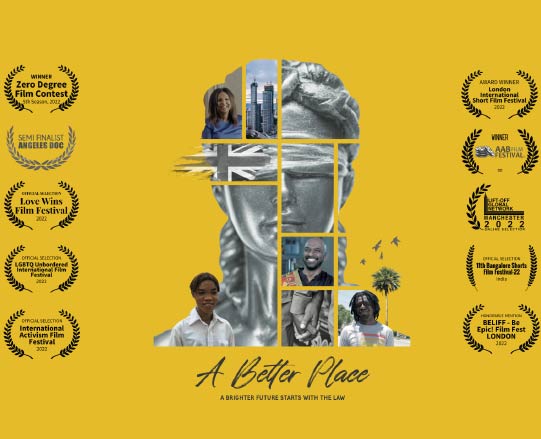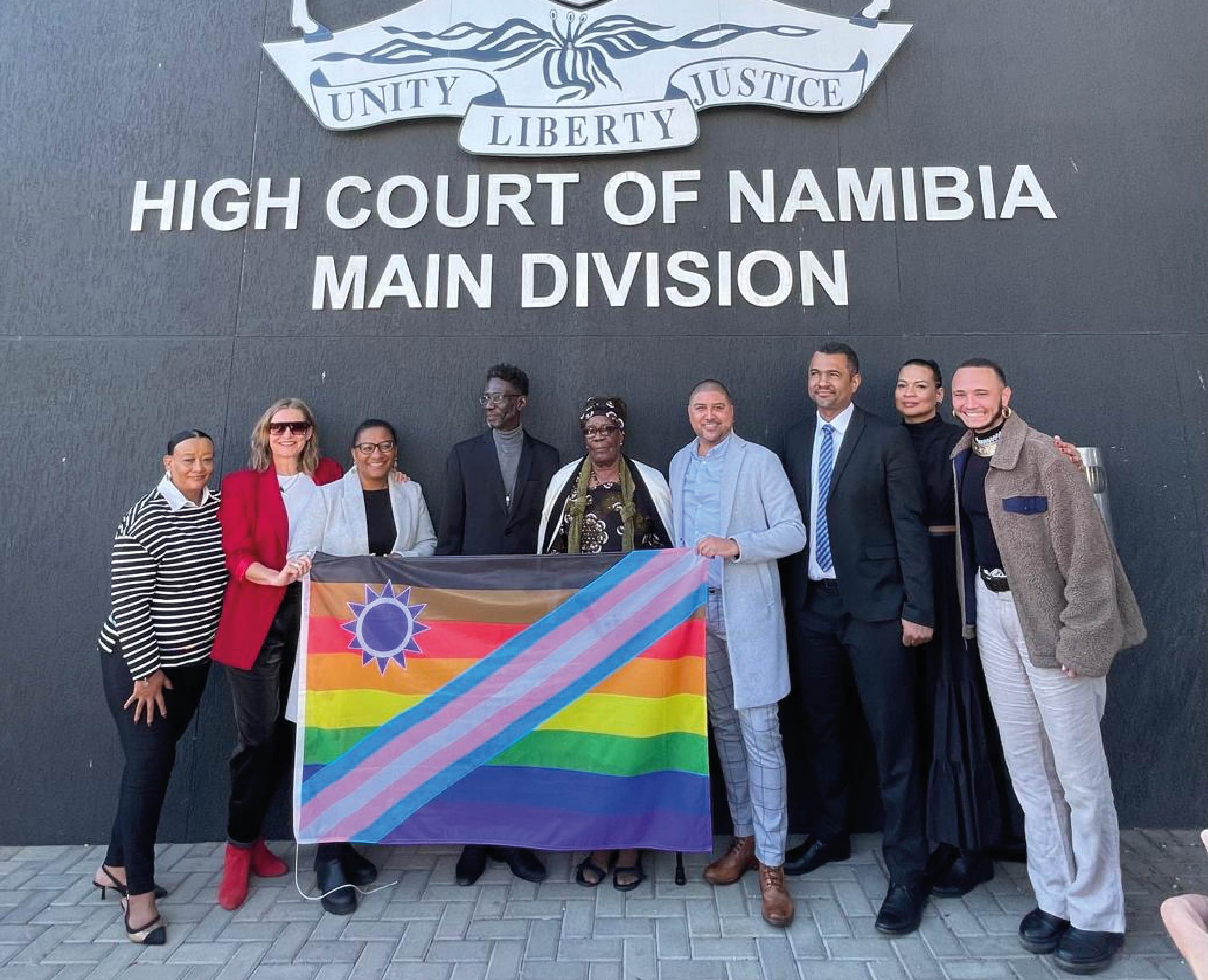Today, the Human Dignity Trust launched its multi award-winning documentary film, A Better Place, which portrays the impact of British colonial-era laws on the lives of LGBT people, women and others across the globe. Today, more than 60 countries continue to criminalise consensual same-sex intimacy, with 12 imposing the death penalty.
The film was co-produced by the Human Dignity Trust and The Good Side and has won 18 awards and secured official selections at 57 festivals.
Activists, human rights lawyers and political figures feature in the film, unveiling the stories of LGBT people whose intimate relationships are criminalised and subject to state-sanctioned stigma and violence. Women and girls are also victim to a raft of ongoing Victorian-era laws, speaking in the film about enduring sexual violence in their homes, with no recourse for justice. In over 30 Commonwealth countries, rape within marriage is still legal. Behind these statistics lie the people whose lives are paralysed by these archaic laws.
Together, courageous survivors and reformers are working to eradicate these laws, which blight the lives of millions worldwide. By unshackling societies from the devastating relics of colonialism, and confronting new anti-LGBT legal developments, this inspiring network of changemakers is forging a path to a more equal, just and happier world.
I am thrilled that A Better Place has received so much international recognition for the powerful message it conveys. The real heroes are the activists at the centre of this film, who risk their personal safety for the benefit of entire societies. To this day, the preponderance of anti-LGBT criminal laws exist either because of religious laws or through laws that were spread around the world during British colonial times. These laws have for over a century created an environment of stigma, discrimination and violence for LGBT people, and must be struck from statute books.
Among others, the film spotlights Eric Gitari, a Kenyan human rights lawyer and the plaintiff in a court challenge to decriminalise same-sex acts in his native Kenya, who comments, ‘…the law is for everyone — rich, poor, urban, rural, gay, straight. We know we can do better, if we are honest with ourselves. The Constitution, it’s about protecting vulnerable minorities, marginalised people.’
The film also features Khalinda Madeleine, a trans woman from Seychelles, who knows all too well about the struggle against discrimination, violence and police indifference. She shares the pain of being violently attacked—dragged by her hair, beaten, and left with no hope of justice.

Since the making of this film, the Seychelles National Assembly has passed groundbreaking legislation to better protect against hate-based crimes. This offers hope for Khalinda and the wider Seychellois LGBT community and is the first time in Seychelles’ history that a law has been adopted to protect people from crimes motivated by prejudice and identity-based hate.
Rosanna Flamer-Caldera, Executive Director of EQUAL GROUND in Sri Lanka, describes how people have tried to drag her from her car, how she now has CCTV throughout her home, and the impact that such a reality has had on her. Rosanna was the complainant in a groundbreaking case under the UN Convention on the Elimination of Discrimination Against Women (CEDAW), supported by the Human Dignity Trust, which Rosanna won. The CEDAW Committee found that a Sri Lankan law criminalising consensual, same-sex intimacy between women was a violation of the country’s legal obligations under CEDAW.
These stories offer hope, but as we celebrate LGBT History Month here in the UK and around the world, we must also acknowledge the millions who continue to live under repressive laws that limit their right to live freely, love without judgment and be their authentic selves.
Notes to editors
- Watch the film here.
- Please feel free to share this film amongst family and friends: ‘Dear XXX, I have just watched this powerful film about LGBT rights globally and the impact of archaic laws still being felt today. Please take 30 minutes to watch this.’
- The film has so far been selected for 57 festivals with 18 award wins, 1 Finalist, 4 Semi Finalist, 3 Nominees and 4 Honourable Mentions.
- At the time of filming A Better Place, the number of jurisdictions criminalising consensual same-sex acts was over 70. That number has now fallen to 64.
- The Human Dignity Trust works with LGBT activists around the world to defend human rights in countries where private, consensual, same-sex sexual activity is criminalised. We provide free technical legal assistance to local organisations that are challenging laws that persecute people on the basis of their sexual orientation and/or gender identity.
For more information and to arrange interviews contact:
James Aldworth, Communications Manager, Human Dignity Trust
T: +44 (0)7394 805140
Social media:
Twitter/ X: @HumanDignityT
LinkedIn: @human-dignity-trust
Instagram: @humandignitytrust
Bluesky: @humandignitytrust.bsky.social
YouTube: @humandignitytrust5963





